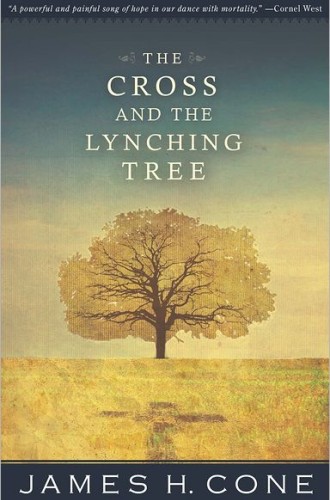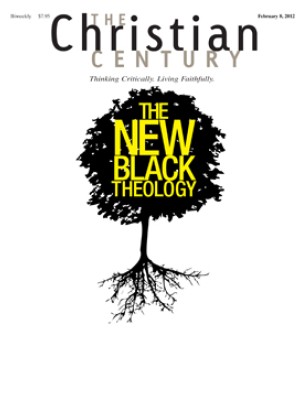The Cross and the Lynching Tree, by James H. Cone
My great-grandfather was lynched. It was not a big affair in the town square; it happened on a dusty southern road. But its imprint and the communal denial in the small southern town that is our homeland have had lasting reverberations for generations of my family.
I begin with this disclosure because to adequately appreciate James Cone's reason for writing this work, it is necessary to recognize that few African Americans are more than a few degrees removed from a similar narrative and the experience that it creates. It is the ubiquity of this experience that makes it a theological category. The theological methodology used by black theology is one which gives primacy to experience: experience of not only the divine but also of the vicissitudes of human pain and suffering caused by the workings of evil.
Read our latest issue or browse back issues.
Whereas in other works Cone broadly takes on the corruption of Christian practice and proclamation and Christians' complicity with racism, in The Cross and the Lynching Tree he focuses on a type of complicity that involves the church not just in corruption but in evil. The complicity on which he focuses is the Christianization of lynching: the common practice of murdering (killing seems too sanitized a term) African Americans as a means of social and political control after the demise of Reconstruction. Frequently these deaths were torturous and were made public spectacle.
More often than not, the public renderings of black bodies were carried out by "good Christian folk"—people who had become convinced that their dedication to the regime of white supremacy that demanded these executions was part and parcel of their Christian identity. It is no coincidence that most of the lynchings from the late 19th to mid-20th century occurred in the Bible Belt. Churchgoing lynchers were often murdering other churchgoing Christians who were of the same communion: Baptists killed Baptists and so on.
The Cross and the Lynching Tree is a theological meditation on a dimension of the lethal oppression experienced by African Americans that has been formative for both the faith and civic posture of the black community for a very long time. Cone foregrounds lynching and its ubiquitous threat as the concrete denial of African Americans' claims to a recognition of their full humanity and of their citizenship in the body politic and in the household of God. The book is also a reflection on contemporaneous and historical erasure as a means of cultivating what my colleague Mary McClintock Fulkerson terms the "obliviousness of whiteness" to black suffering.
Cone treats Reinhold Niebuhr as exemplary of the tendency in 20th-century liberalism to treat the violation of black bodies by lynching as a national tragedy but not as an ecclesial failure, and he demonstrates the ways that the church was and still is captive to the hegemonic imagination of modernity, in which the only bodies that are finally precious to God (not merely of some value) are white bodies. Had Cone's reflection stopped with the analysis of Niebuhr, this book would have largely been of a piece with his earlier projects. What distinguishes this book and makes it a fitting capstone to his career is the way that he uses the creativity of African-American theological and cultural sources to transform a central category of the Christian faith so that it resists the co-option of the faith by the forces of lethal iniquity.
He does this with a masterful interpretation of Martin Luther King Jr.'s thought and a careful reading of the African-American literary tradition as it reflects on the terror and religious tragedy of lynching. Cone uses these sources to show how the response of the African-American Christian tradition to this tragedy not only provides ethical means to talk about unearned violence but, more important, illumines ways that the doctrine of the cross might redeem, and be redeemed in, the project of theology in a situation of lethal racial oppression. This is no small thing given that we have witnessed throughout the past century the participation of Christians in not only lethal but ultimately genocidal oppression and violence.
Cone invites us to revisit and rethink the theology of the cross so it does not require an act of historical amnesia that denudes the cross of its redemptive power. Cone says, "The church's most vexing problem today is how to define itself by the gospel of Jesus' cross." How does the church bear witness to the power of life in the midst of a world awash in violence, lethal inequity and the impoverishment of bodies and souls? How does the church witness to the resurrection without being oblivious of those suffering on the cross or a tree? It is my sense that addressing this problem has been Cone's project from the beginning. The Cross and the Lynching Tree is the fruit of a career that has followed an intuition; would that we all were gifted with such a still small voice.




